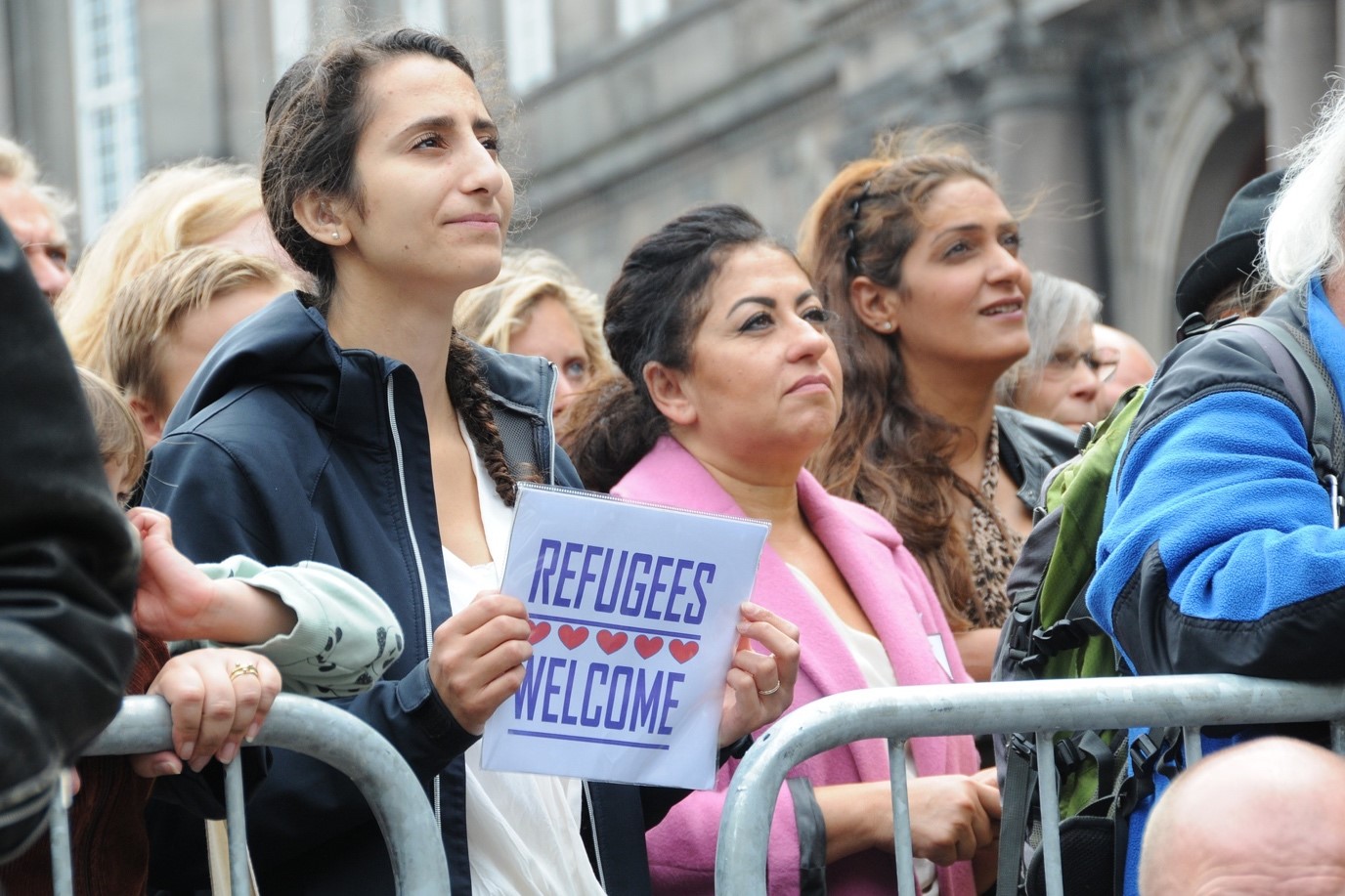A new article, published in the Ethics and Global Politics, argues that countries with effective protection for LGBT refugees should prioritize LGBT people in their refugee admission policies. Due to the documented challenges experienced by LGBT refugees and the relatively low number of states with adequate protection for LGBT people, the philosopher Annamari Vitikainen makes the case that such countries should take additional steps to protect LGBT refugees.
Vitikainen, from the Department of Philosophy at the Arctic University of Norway, writes:
“Given the relatively low number of countries that are both willing and able to protect LGBT persons also against other, non-asylum-grounding injustices, provide these countries – typically, Western liberal democracies – strong moral reasons to prioritize refuges with LGBT status over non-LGBT refugees in refuges admissions.”
 It is well-documented in the mental health literature that immigrants and refugees are at heightened risk of psychiatric symptoms and psychosis, owing mainly to the impact of social determinants such as discrimination and poverty. In addition, international research studies have found that heightened levels of suicide and mental health concerns in the LGBT population are directly impacted by discriminatory laws and attitudes in their immediate communities. As a result, LGBT refugees are at a significantly heightened risk for mistreatment and psychosocial stress.
It is well-documented in the mental health literature that immigrants and refugees are at heightened risk of psychiatric symptoms and psychosis, owing mainly to the impact of social determinants such as discrimination and poverty. In addition, international research studies have found that heightened levels of suicide and mental health concerns in the LGBT population are directly impacted by discriminatory laws and attitudes in their immediate communities. As a result, LGBT refugees are at a significantly heightened risk for mistreatment and psychosocial stress.
According to the United Nations, a refugee is defined as a person outside their country who has a well-founded fear of persecution owing to their race, nationality, religion, political opinion, or membership of a particular social group. In the past 20 years, LGBT people were recognized as a specific social group that faces persecution. Therefore, people may seek asylum protection due to their sexual orientation and gender identity, especially people who live in countries that criminalize same-sex behaviors and gender divergence.
However, LGBT refugees continue to face unique challenges in the process of seeking asylum. First, the existence of anti-LGBT legislation is not seen as sufficient to establish a “well-founded fear of persecution.” The anti-LGBT legislation must be seen to have substantive consequences and must be actively enforced. LGBT people face the dilemma of whether or not to reveal their LGBT identities for the asylum application or whether to conceal their identities to avoid any persecution.
“For LGBT persons, this requirement of individualized fear of persecution has proven especially problematic, as in many cases a person’s sexual orientation and gender identity may be hidden,” Vitikainen points out.
There are also ethical issues regarding the invasive methods used to “prove” a person’s sexual orientation. Those methods often involve outright physically degrading procedures and invasive interrogations. For example, people will be asked to complete phallometric testing of physical arousal and to provide graphic detail regarding their sexual histories.
“The rationale for requiring such ‘proof’ comes from the states’ need to distinguish false applications and avoid opportunistic usages of LGBT stats by non-LGBT persons,” Vitikainen explains. “Given the immense social stigma, homophobia, and persecution that LGBT refugees are fleeing from, the requirement to disclose one’s intimate life to the authorities can be seen as both invasive and unreasonably demanding.”
The author then categorized countries around the world according to their overall levels of support for LGBT people based on degrees of criminalization, existing protections, and structural injustice. The countries were divided into three groups: (1) countries with active state-sponsored persecution/criminalization, (2) countries with effective anti-discrimination legislation and recognition of same-sex partnerships, and (3) countries in between the first two groups.
Once the groups were established, the author presents common scenarios to build his case. For example:
“A child is about to drown in a pond. Two persons (A and B) are standing next to the pond and are thus both in a position to rescue the child from drowning. However, Person A has a muscular dysfunction that causes her to grip objects with an abnormally strong force. While rescuing the child, Person A will inflict physical injury to the child, but Person B will not. Both A and B are aware of this fact.”
The author suggested that Person B now has additional moral reasons to ensure that they rescue the child since there is a perfectly predictable consequence from Person A’s rescue. That is, countries are able and willing to grant asylum to refugees with LGBT status and protect them against several other types of injustice (such as passive state-sponsored persecution and lack of state protection) should consider their position.
The author also addresses some possible objections to his view. He elaborates on why concerns around opportunism and homogeneity may not be valid with the case of LGBT refugees. He also responds to the possible criticism that such a policy would end up strengthening the existing division between LGBT-friendly and non-friendly countries.
“I argue that those states, best positioned to protect refugees with LGBT status, also have strong moral reasons to prioritize them in refugee admission…. I aim to show that there are morally relevant features of the case that go beyond the question of states’ ability to grant asylum, pertaining to the states’ ability, and willingness, to protect LGBT persons against other types of injustice.”
****
Vitikainen, A. (2020). LGBT rights and refugees: a case for prioritizing LGBT status in refugee admissions. Ethics & Global Politics, 13(1), 64-78. (Link)















“According to the United Nations, a refugee is defined as a person outside their country who has a well-founded fear of persecution owing to their race, nationality, religion, political opinion, or membership of a particular social group.”
Is ‘anti-psychiatrist’ considered to be a “political opinion”, and/or are we considered to be a “particular social group”? Because there is a whole group people called “patients” who have a well founded fear of persecution based on a long history of abuse from people who call themselves doctors. I mean, lets start with a few of their colleagues, Dr Joseph Mengele, Dr Radovan Karadzic, …. I’d say there was “reasonable grounds to suspect” that one might be harmed by people who hold such views about what is and is not considered medicine?
I guess the litmus test is when someone from a ‘rogue State’ seeks asylum from what is considered torture by those receiving them, and is then provided services for the trauma of that torture, from people who can provide zero assistance to citizens who have been subjected to State sanctioned torture lest we make admissions that we are human rights abusers. I suspect that in such a situation that the rate of suicides associated with the people who are doing the torturing would rise, along with the funding being provided to reduce that number. It would become a self fulfilling prophecy. Money being redirected from stopping the deaths into torturing people to stop the deaths resulting in more deaths.
Did someone say KFC?
Report comment
Victims of psychiatrists are the most discriminated and brutally persecuted category of citizens.
Report comment
I found a movie: https://www.youtube.com/watch?v=Feg6rS70o1Q A good, strong film. The content suggests a very pertinent juxtaposition. – What atrocities and crimes for which the accused were tried in Nyurberg have not been repeatedly committed in the modern community? Without the participation of the Nazis and with absolutely impunity. Psychiatry is, of course, an excellent example. Psychiatry alone is enough. I only found the trailer. It would be worth watching the whole movie.
Report comment
Wow, lametamor. Good find. What an all star cast too.
“Dr Wieck, did you ever swear to the Civil Servant Loyalty Oath of 1934?
Everyone did, it was mandatory.
We are not interested in what everyone did Dr Weick, we are interested in what you did.”
They will take their oaths as a cover. And their ‘intercessors’ will leave them in the lurch. They will be judged alone. This way please, crucifixion is it? Line on the left, one cross each…..
https://www.youtube.com/watch?v=9knToyK-wUs
I don’t suppose that “they were worse than us” is going to be of much use to them on the Day of Judgement.
Report comment
Why of objectionable person need to destroy by “treatment”? If the whole problem is how to get rid of the disturbing person, there may be other options. For example can simply kill of unwanted person. Dead, he is guaranteed not to bother anyone. Why does this option not suit the haters of “psychos”? If a person not be allowed to live as his soul requires, then why not leave the opportunity to die? If he himself prefers death to “treatment,” why should he be deprived of even such extreme salvation ?!
Report comment